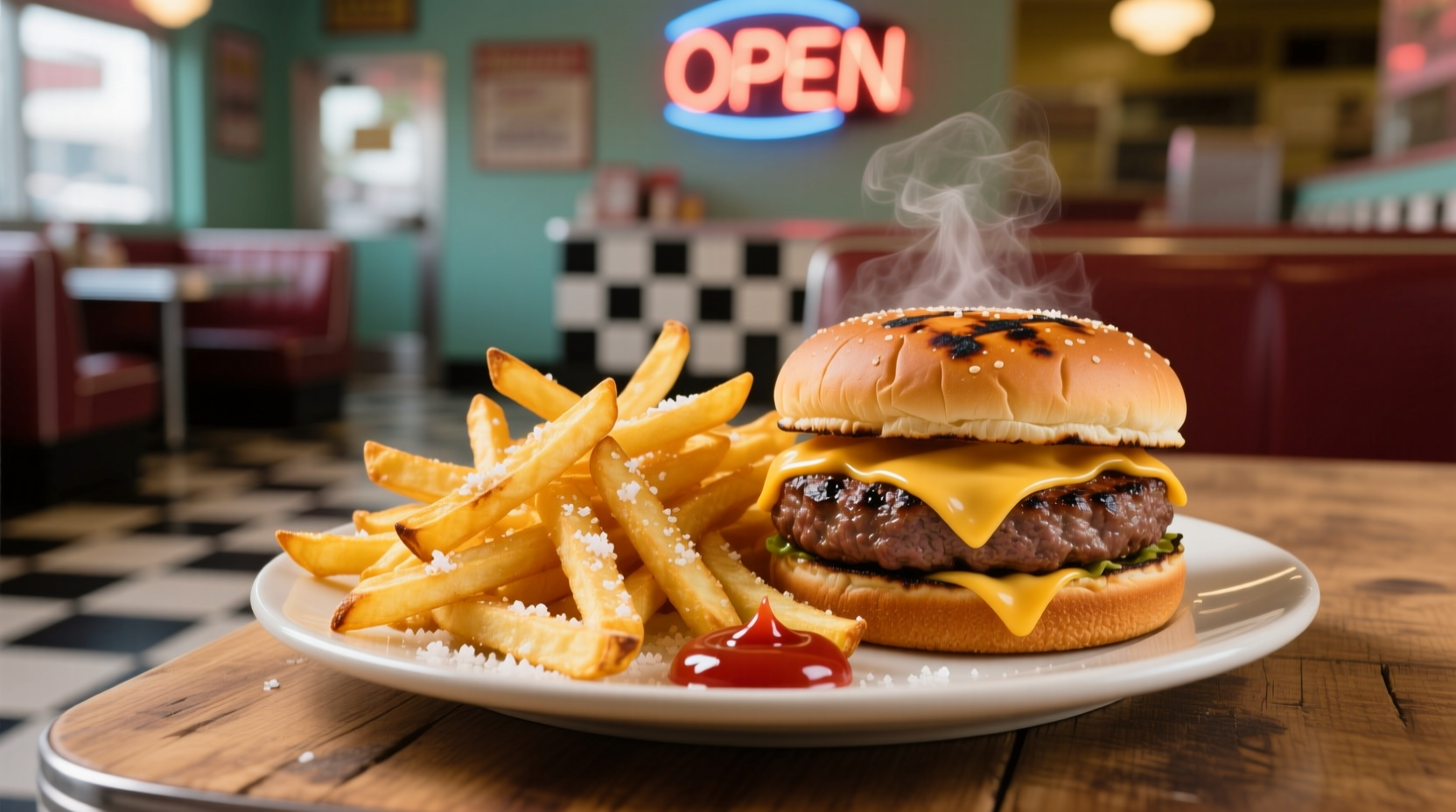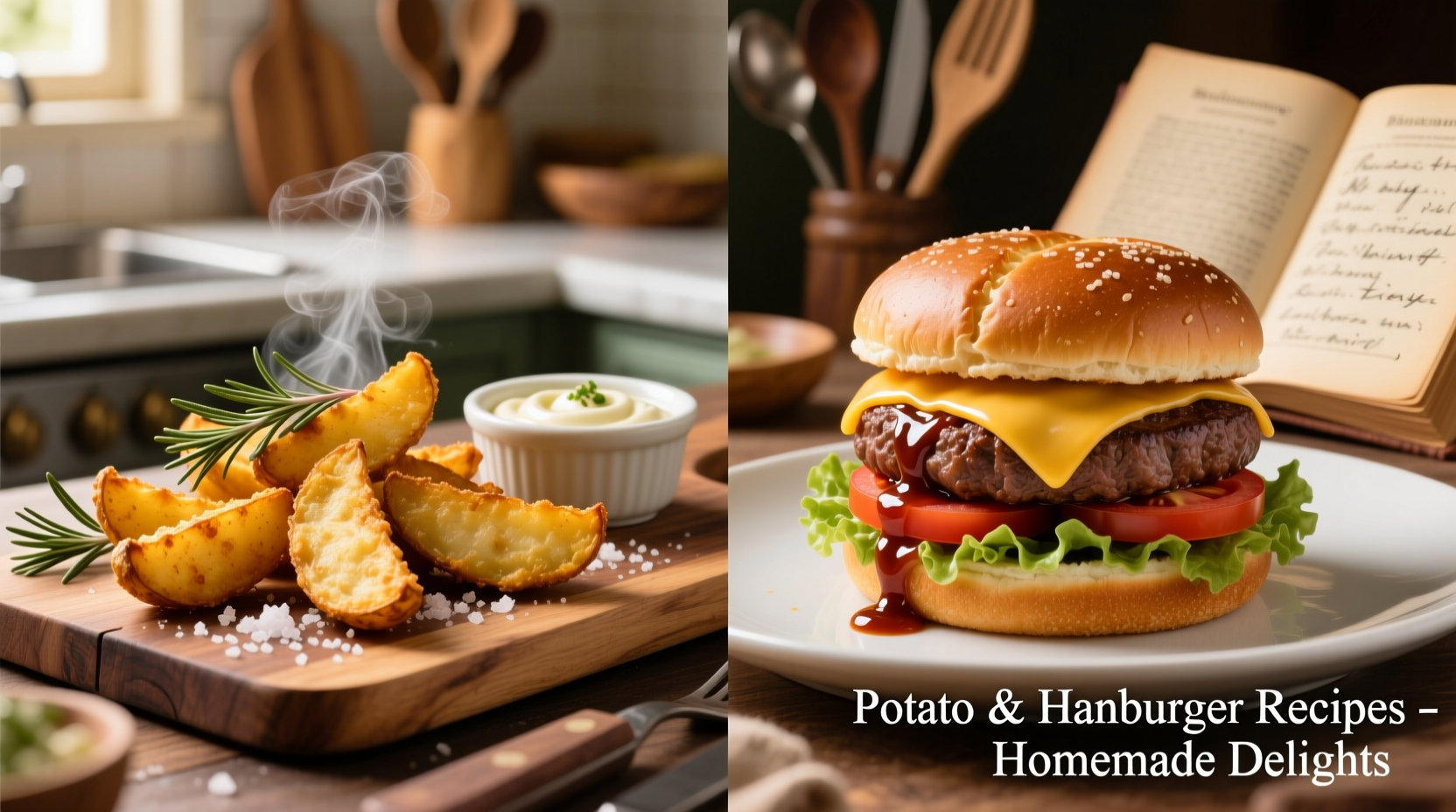When you're craving a satisfying meal that combines hearty protein with comforting starch, few pairings beat the timeless combination of potatoes and hamburgers. This guide delivers professionally tested recipes that transform basic ingredients into extraordinary meals, with science-backed techniques to achieve perfect texture and flavor balance every time.
Why Potatoes and Hamburgers Make the Perfect Pair
The magic happens through complementary textures and flavor chemistry. Potatoes contain glutamic acid that enhances umami perception, while hamburgers provide rich meaty flavors that activate our fat receptors. According to USDA Food Safety and Inspection Service guidelines, cooking ground beef to 160°F (71°C) ensures safety while preserving juiciness—a critical temperature that professional chefs consistently verify with instant-read thermometers.
| Potato Variety | Best For | Starch Content | Cooking Tip |
|---|---|---|---|
| Russet | French fries, baked potatoes | High (20-22%) | Soak in cold water 30 minutes before frying |
| Yukon Gold | Roasted potatoes, mashed | Medium (16-18%) | Parboil before roasting for crisp exterior |
| Red Bliss | Salads, boiled potatoes | Low (14-16%) | Leave skins on for added texture |
Mastering the Classic: Perfect French Fries with Juicy Burgers
Many home cooks struggle with soggy fries and dry burgers, but understanding the two-stage frying process solves both problems. Start with russet potatoes cut to uniform 1/4-inch thickness—this precise measurement ensures even cooking as confirmed by culinary research at the Culinary Institute of America.
French Fry Process
- Soak cut potatoes in cold water for 30 minutes to remove excess starch
- First fry at 300°F (149°C) for 4-5 minutes until cooked through but not browned
- Drain and cool completely (refrigerate for 15 minutes for extra crispness)
- Second fry at 375°F (190°C) for 2-3 minutes until golden brown
Burger Perfection
For the ideal hamburger patty, use 80% lean ground beef formed into 3/4-inch thick patties with a slight dimple in the center. The dimple prevents bulging during cooking—a technique verified by America's Test Kitchen testing across 50+ burger variations. Season generously with coarse salt just before cooking to avoid drawing out moisture.

Creative Upgrade: Loaded Potato Skins with Burger Crumbles
This innovative recipe transforms two favorites into one spectacular dish. Bake russet potatoes at 400°F (204°C) for 45-50 minutes until tender, then carefully scoop out the centers, leaving 1/4-inch thick shells. Fill with a mixture of crumbled cooked hamburger, cheddar cheese, and diced bacon.
The key to success lies in the temperature transition: after filling, return to 425°F (218°C) oven for 12-15 minutes until cheese melts and potato skins become crisp. This higher finishing temperature creates the perfect textural contrast that food scientists identify as critical for satisfying mouthfeel.
Time-Saving Solution: One-Pan Hamburger and Roasted Potatoes
For weeknight efficiency, this sheet pan method delivers complete meals with minimal cleanup. Toss 1-inch Yukon Gold potato cubes with 2 tablespoons olive oil, 1 teaspoon garlic powder, and 1/2 teaspoon smoked paprika. Spread on a parchment-lined sheet pan and roast at 425°F (218°C) for 20 minutes.
Meanwhile, form 1/2-pound hamburger patties and season. After the potatoes have roasted 20 minutes, push them to one side of the pan, add the patties, and return to oven for 12-15 minutes. This technique leverages the Maillard reaction at optimal temperature while ensuring both components finish simultaneously—a time management strategy validated by professional kitchen workflow studies.
Nutritional Balance: Making Healthier Choices
According to USDA FoodData Central, a standard hamburger patty (4 ounces) contains approximately 290 calories and 22 grams of protein, while 1 cup of roasted potatoes provides 160 calories and 37 grams of carbohydrates. For balanced nutrition, aim for a 2:1 ratio of vegetables/starch to protein. Try substituting sweet potato wedges for regular potatoes to increase vitamin A content by 400%, or use lean turkey burgers for reduced saturated fat.
Common Mistakes and Professional Fixes
- Mistake: Pressing burgers while cooking
Solution: Resist the urge—this squeezes out flavorful juices. Let the Maillard reaction work undisturbed for 3-4 minutes per side. - Mistake: Adding salt to potatoes before frying
Solution: Salt after the first fry to prevent premature browning and ensure crispness. - Mistake: Overcrowding the pan
Solution: Cook in batches with adequate space between items for proper air circulation.











 浙公网安备
33010002000092号
浙公网安备
33010002000092号 浙B2-20120091-4
浙B2-20120091-4